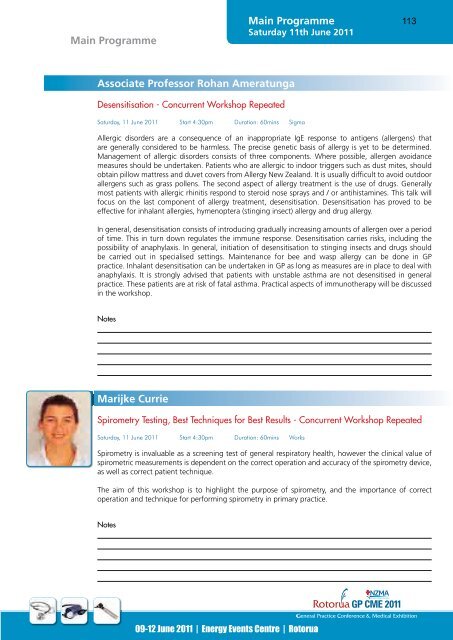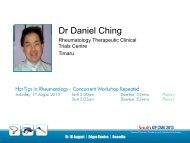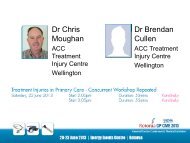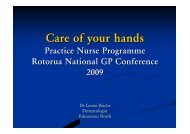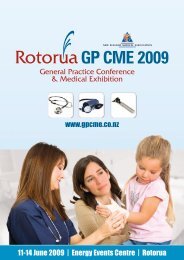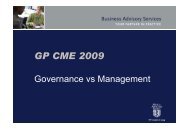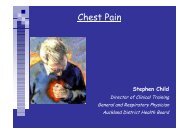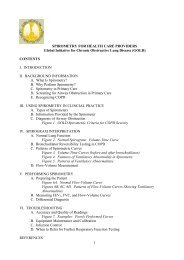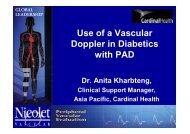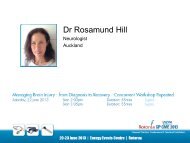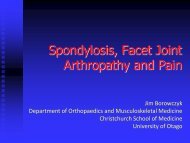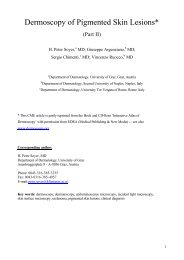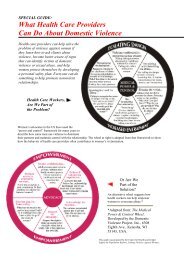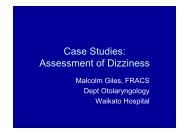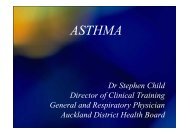DOWNLOAD GP CME 2010 PROCEEDINGS BOOKLET (18mb PDF)
DOWNLOAD GP CME 2010 PROCEEDINGS BOOKLET (18mb PDF)
DOWNLOAD GP CME 2010 PROCEEDINGS BOOKLET (18mb PDF)
You also want an ePaper? Increase the reach of your titles
YUMPU automatically turns print PDFs into web optimized ePapers that Google loves.
Main Programme<br />
Main Programme<br />
Saturday 11th June 2011<br />
113<br />
Associate Professor Rohan Ameratunga<br />
Desensitisation - Concurrent Workshop Repeated<br />
Saturday, 11 June 2011 Start 4:30pm Duration: 60mins Sigma<br />
Allergic disorders are a consequence of an inappropriate IgE response to antigens (allergens) that<br />
are generally considered to be harmless. The precise genetic basis of allergy is yet to be determined.<br />
Management of allergic disorders consists of three components. Where possible, allergen avoidance<br />
measures should be undertaken. Patients who are allergic to indoor triggers such as dust mites, should<br />
obtain pillow mattress and duvet covers from Allergy New Zealand. It is usually difficult to avoid outdoor<br />
allergens such as grass pollens. The second aspect of allergy treatment is the use of drugs. Generally<br />
most patients with allergic rhinitis respond to steroid nose sprays and / or antihistamines. This talk will<br />
focus on the last component of allergy treatment, desensitisation. Desensitisation has proved to be<br />
effective for inhalant allergies, hymenoptera (stinging insect) allergy and drug allergy.<br />
In general, desensitisation consists of introducing gradually increasing amounts of allergen over a period<br />
of time. This in turn down regulates the immune response. Desensitisation carries risks, including the<br />
possibility of anaphylaxis. In general, initiation of desensitisation to stinging insects and drugs should<br />
be carried out in specialised settings. Maintenance for bee and wasp allergy can be done in <strong>GP</strong><br />
practice. Inhalant desensitisation can be undertaken in <strong>GP</strong> as long as measures are in place to deal with<br />
anaphylaxis. It is strongly advised that patients with unstable asthma are not desensitised in general<br />
practice. These patients are at risk of fatal asthma. Practical aspects of immunotherapy will be discussed<br />
in the workshop.<br />
Notes<br />
Marijke Currie<br />
Spirometry Testing, Best Techniques for Best Results - Concurrent Workshop Repeated<br />
Saturday, 11 June 2011 Start 4:30pm Duration: 60mins Works<br />
Spirometry is invaluable as a screening test of general respiratory health, however the clinical value of<br />
spirometric measurements is dependent on the correct operation and accuracy of the spirometry device,<br />
as well as correct patient technique.<br />
The aim of this workshop is to highlight the purpose of spirometry, and the importance of correct<br />
operation and technique for performing spirometry in primary practice.<br />
Notes<br />
09-12 June 2011 | Energy Events Centre | Rotorua


